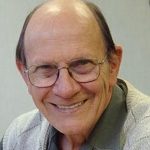These products are available for our online quotation service
Other Products
Robert Acland was a pioneering plastic surgeon who transformed micro surgery and together with our colleagues S&T of Schaffhausen Switzerland invented the Acland Micro Vessel Clamp widely used now in micro surgery and many other micro instruments in current use around the world today.
 Professor Robert Acland was a pioneer of microsurgery in both Britain and America, developing together with the S&T Company Micro Surgery instruments, sutures and needles which have allowed surgeons to perform precise micro surgery with the best quality instruments.
Professor Robert Acland was a pioneer of microsurgery in both Britain and America, developing together with the S&T Company Micro Surgery instruments, sutures and needles which have allowed surgeons to perform precise micro surgery with the best quality instruments.
Acland’s ground breaking work made micro-vascular operations a practical option for the first time. His work on repairing small blood vessels – of 0.5mm or less – has helped the reconstruction of facial or breast tissues after cancer surgery and the restoration of limbs after trauma.
Operating on tiny arteries and veins under a microscope, Acland invented miniature clamps to stop the blood flow and hold the ends of the vessels together for stitching. Previously there were no needles fine enough for this work and no stainless steel wire suitable to make such needles.
Acland overcame this hurdle by obtaining the finest wire available, 100 microns, and thinning it down to 80 microns by electro-polishing. He demonstrated this to a wire manufacturer, who went on to produce extra-fine wire to his specifications. Needles of this dimension are now in daily use in hospitals across the world.
Robert Acland was born on June 20 1941 in Exeter and was educated at Bryanston School in Dorset.
He graduated from the London Hospital Medical School in 1964 and completed an internship in Tanzania. He received his FRCS in 1969 and returned to the London Hospital a year later as a research fellow . A visit to the distinguished plastic surgeon Harry Buncke in San Francisco convinced Acland to devote his career to microsurgery.
In the early 1970s he moved to the Plastic Surgery Unit at Canniesburn Hospital, Glasgow. There he performed six free tissue transfer operations, including a transfer of a skin flap from the chest wall to the scalp and re-establishing the blood circulation.
These operations lasted many hours and Acland was working in a stressful environment, undertaking delicate surgery under the watchful eye of conservative senior surgeons.